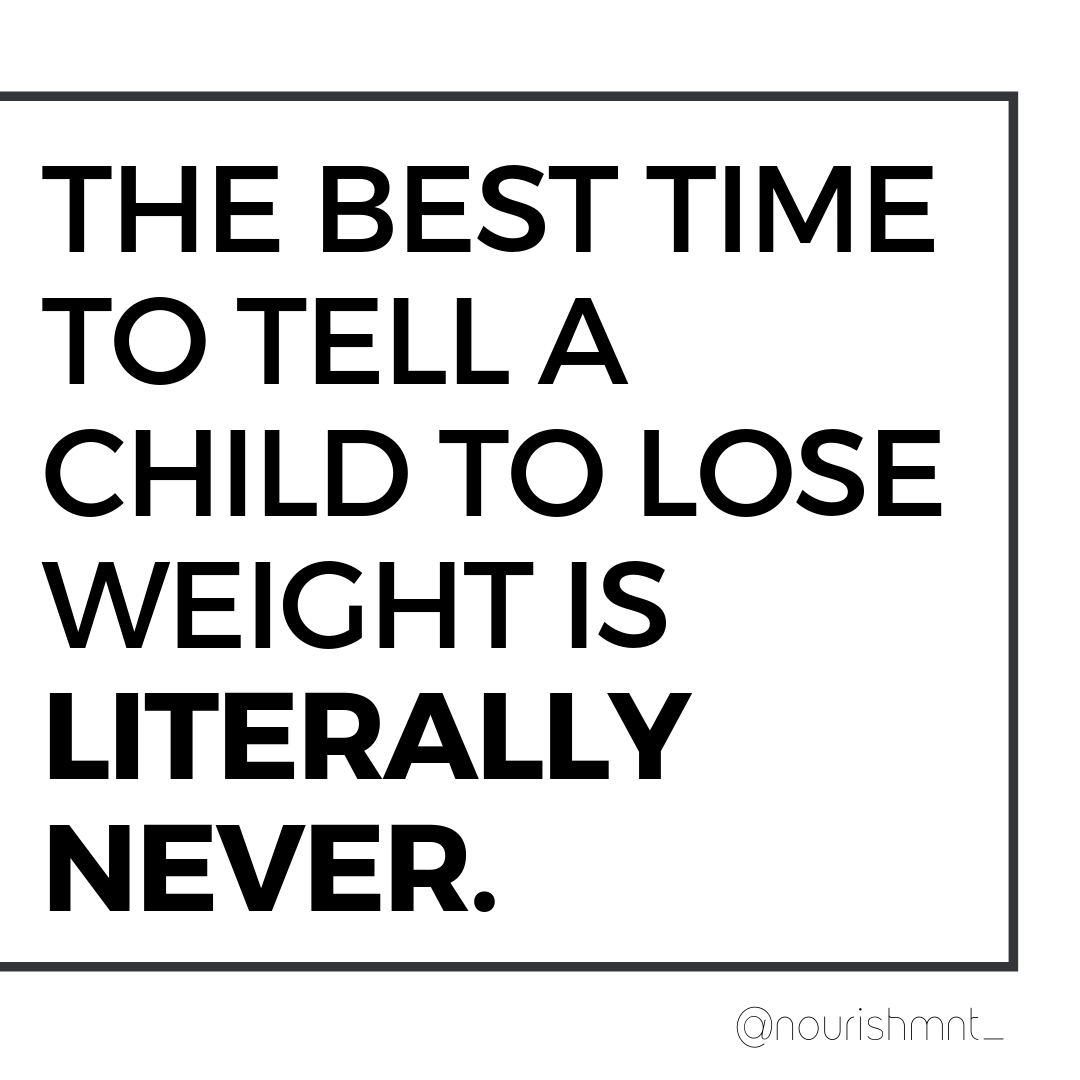Talking to Children About Their Bodies and Weight
By Diana Marlin, RD, LDN
Regardless of whether you are the child's parent, coach, family friend, relative, dietitian, or doctor, it is NEVER appropriate to tell a child that he or she needs to lose weight and to put the child on a restrictive weight loss diet.
Telling children that they need to lose weight and putting them on restrictive weight loss diets can hurt the foundation of the sacred trust between their minds and their bodies. As soon as we start doubting our bodies, it can become increasingly difficult to listen to and honor our bodies' needs. Down the road, this can lead to the child having a difficult and unhealthy relationship with food, which can negatively impact their mental and physical health.
To reinforce this, here are two excerpts from the American Academy of Pediatrics 2016 Guidelines:
"Dieting, defined as caloric restriction with the goal of weight loss, is a risk factor for both obesity and EDs [eating disorders]. In a large prospective cohort study in 9- to 14-year-olds (N = 16 882) followed for 2 years, dieting was associated with greater weight gain and increased rates of binge eating in both boys and girls."
"In a large prospective cohort study in students 14 to 15 years of age followed for 3 years, dieting was the most important predictor of a developing ED [eating disorder]. Students who severely restricted their energy intake and skipped meals were 18 times more likely to develop an ED than those who did not diet; those who dieted at a moderate level had a fivefold increased risk." 1
1 https://pediatrics.aappublications.org/content/138/3/e20161649#ref-4
So if you are concerned about a child’s health, what can you do instead?
When it comes to kids (and people of any age!) it is CRITICAL to keep the focus on joyful and gentle self care achieved through modeling and encouraging healthy habits.
This can be achieved by:
Facilitating fun play and joyful movement that isn’t about burning calories and losing weight
Keeping conversations body positive, whether you are discussing the child’s body, or your own
Encouraging them to try all sorts of foods, and discussing any food, whether it is broccoli or birthday cake, in a neutral way that doesn’t enforce that idea that some food should be accompanied by guilt and shame.
Allowing them to listen to and trust their tummies. Trust that children know when to eat and when to stop, and don't interfere by telling them that they have to finish everything that's on their plates, or that they aren't allowed to have seconds because they've had 'enough'
Getting them involved in the grocery store, in the kitchen, or even in the garden to help them to connect with food in a positive way
Creating fun food traditions for your family
Serving a variety of foods that are nourishing and fun, and not sweating it on days when the child eats more or less than usual
Casually introducing new foods alongside familiar favorites, and remembering that it can take several encounters with a new food for children to decide to try it and determine whether they like it
Accepting that body diversity is something to be embraced and celebrated in adults and children alike
Most importantly, keeping in mind the child's mental and emotional health when discussing their physical health, because ultimately mental health IS physical health
It can be incredibly difficult for parents/doctors/coaches/etc. who are concerned for a child's health to not turn the conversation to weight and restriction, but it is so important for the sake of the child's health and well-being to choose language carefully and to promote true wellness.


